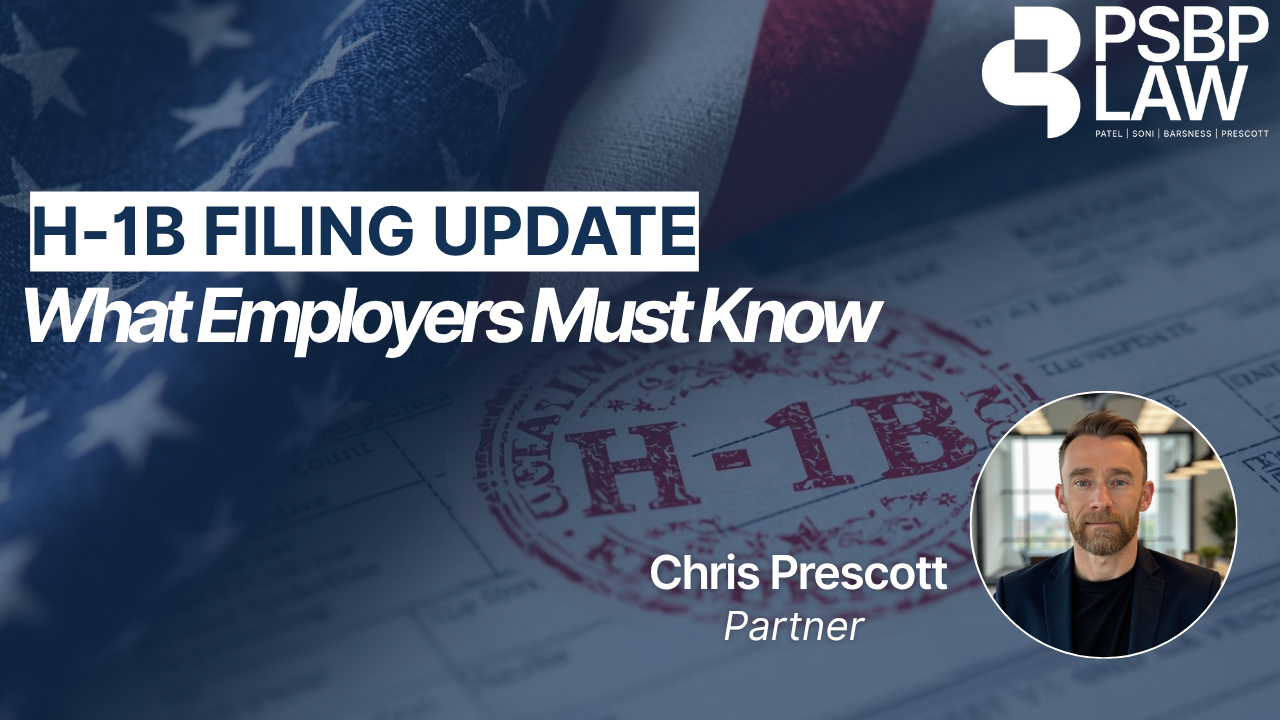The U.S. Citizenship and Immigration Services (USCIS) has provided additional clarification on how the $100,000 H-1B payment under the recent Presidential Proclamation will be applied and processed. The measure, which takes effect September 21, 2025 (12:01 a.m. EDT), significantly changes the filing requirements for certain H-1B petitions.
Who Is Subject to the $100,000 Fee
The Proclamation applies to:
- New H-1B petitions filed on or after September 21, 2025, for beneficiaries outside the United States and who do not currently hold a valid H-1B visa.
- Petitions requesting consular or port-of-entry notification, even if the employer is U.S.-based.
- Petitions for change of status, amendment, or extension where USCIS determines the beneficiary was not in valid status or departed the U.S. before the adjudication of a change of status request. In such cases, the Proclamation applies and payment is required.
Who Is Exempt
The $100,000 payment does not apply to:
- Any previously issued and currently valid H-1B visas, or any petitions submitted prior to 12:01 a.m. eastern daylight time on September 21, 2025.
- Amendment, change of status, or extension filings granted for individuals already in the U.S. and maintaining valid H-1B status.
- Current H-1B visa holders or beneficiaries who travel in and out of the US following petition approval.
How and When to Pay
The required $100,000 payment must be made before filing the petition, using Pay.gov.
A proof of payment receipt, or a Department of Homeland Security-issued exemption, must be submitted with the petition. Failure to include this proof will result in automatic denial of the filing.

Limited Waiver Authority
The Secretary of Homeland Security may waive the payment only in narrow, exceptional circumstances, including where:
- The foreign worker’s presence is deemed to serve the national interest,
- No qualified U.S. worker is available,
- The individual poses no security risk, and
- Imposing the payment would undermine U.S. interests.
Conclusion
This new fee represents one of the most significant cost barriers ever introduced in the H-1B program. Employers should begin preparing now to evaluate filing strategies, assess whether their cases fall within the scope of the Proclamation, and ensure payment compliance before submission. However, those utilizing the H-1B program should also be aware that a federal lawsuit has been filed, which seeks to directly challenge this fee. If the lawsuit succeeds, this fee may no longer be applicable. As the President does not have the authority to introduce new immigration fees, we are hopeful that the lawsuit will be successful.
For a deeper discussion on how this policy could affect employers and foreign workers, watch our recent webinar on the H-1B fee update.
If you have questions regarding the above, please e-mail PSBP Partner Chris Prescott at cprescott@psbplaw.com.